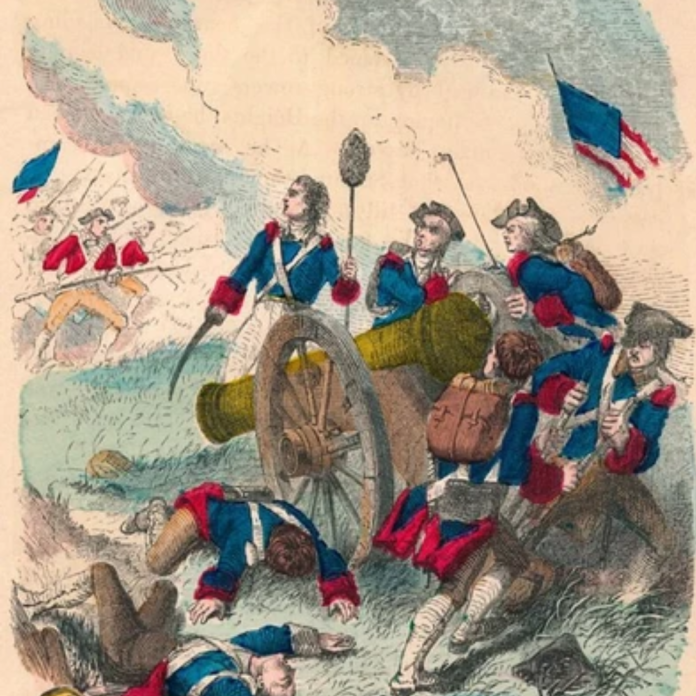In 1774, Captain Robert Newburgh of the 18th Regiment of Foot stood trial in North America. As a British army officer, he was expected to represent the ideals of leadership, discipline, and moral authority. Instead, he was court-martialed on charges of “vicious and immoral behaviour”—a vague but loaded accusation, widely understood to mean sodomy.
At the time, homosexuality was a capital offence under British law. Although the precise nature of Newburgh’s alleged misconduct remains unclear, the case quickly became about more than one man’s personal conduct. It struck a nerve, exposing deep anxieties about military authority, social order, and the precarious state of British power—especially as tensions with the American colonies were rapidly escalating.
Speaking on the HistoryExtra podcast, historian John McCurdy explains how this little-known case revealed cracks in the British military hierarchy. The trial touched on sensitive questions around masculinity, power, and control at a moment of growing instability.
Discipline, Masculinity, and the Military Machine
The British Army in the 18th century was built on a strict, gendered hierarchy. Officers were expected to embody the highest standards of masculine virtue—commanding, composed, and morally upright. Enlisted men, by contrast, were to be disciplined, submissive, and unquestionably obedient.
Anything that blurred or subverted these roles—especially behaviors seen as effeminate or “deviant”—was seen as a threat to the whole system. Once Newburgh was accused of sodomy, it wasn’t just the charge itself that came under scrutiny. His personal style and demeanor were put on trial as well.
“The court-martial records show that he really liked fancy clothes,” McCurdy notes. “It culminates in an accusation that he looks like a ‘macaroni’.”
In 18th-century Britain, the term “macaroni” mocked men who dressed flamboyantly and were seen as overly refined or effeminate. In a military context, such appearance wasn’t just ridiculed—it was interpreted as weakness, moral failure, and an inability to lead.
As McCurdy argues, the trial was ultimately about more than whether Newburgh broke the law. It was about whether someone perceived as unmanly and “deviant” could be trusted with power in a system that depended on clear, rigid hierarchies.
A Symbol of Imperial Insecurity
Newburgh’s trial took place against a backdrop of mounting unrest. In the early 1770s, Britain’s American colonies were growing increasingly rebellious. Within the army, maintaining ironclad discipline was paramount. Any suggestion that authority could be undermined—from outside or within—was deeply threatening.
Newburgh’s case, then, became symbolic of a much larger crisis. It reflected a broader fear that the foundations of military—and imperial—order were under siege. As McCurdy points out, the fallout from the trial echoed across the Atlantic divide: “His defenders […] will leave the British army and become American citizens. His chief prosecutors will stay loyal to the king.”
In this way, Newburgh’s court-martial wasn’t just about individual guilt or innocence—it became a metaphor for a collapsing consensus about loyalty, masculinity, and control within the British Empire.
The Aftermath
Despite the severity of the charge, Newburgh was not executed. Instead, he was quietly dismissed from service. That outcome may have been a strategic move—allowing the army to remove a perceived liability without sparking further scandal, especially as rebellion brewed in the colonies.
Even so, the case left its mark. It reinforced the message that the military’s authority rested not only on battlefield performance but also on strict conformity to gender norms. Any deviation—real or perceived—was enough to end a career and trigger widespread institutional anxiety.
As McCurdy observes, the Newburgh affair shows that the British Army wasn’t just policing discipline—it was enforcing a vision of masculinity that underpinned its entire structure. And in doing so, it revealed just how fragile that structure really was.


